Behind this sign is a story
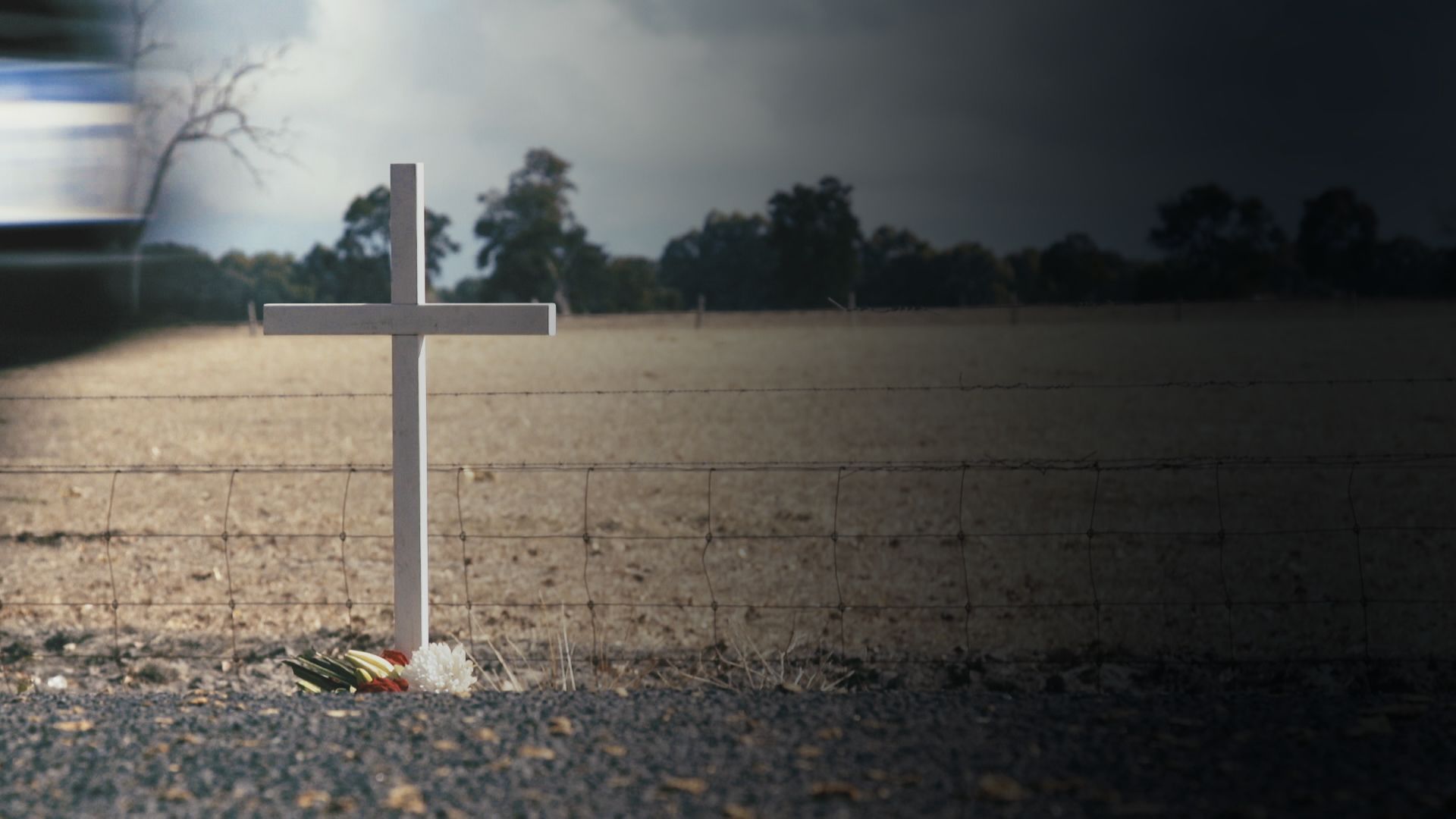
There’s nothing quite as silencing as a small wooden cross on the side of the road...
You don’t need to know the who, what or how to feel the impact of that sign.
"Drive safe"
The simple phrase we unconsciously tack onto the end of a farewell now holds a deeper meaning for Carolyn Armstrong.
Eleven years ago she lost her dad in a tragic crash with another vehicle on South Western Highway.
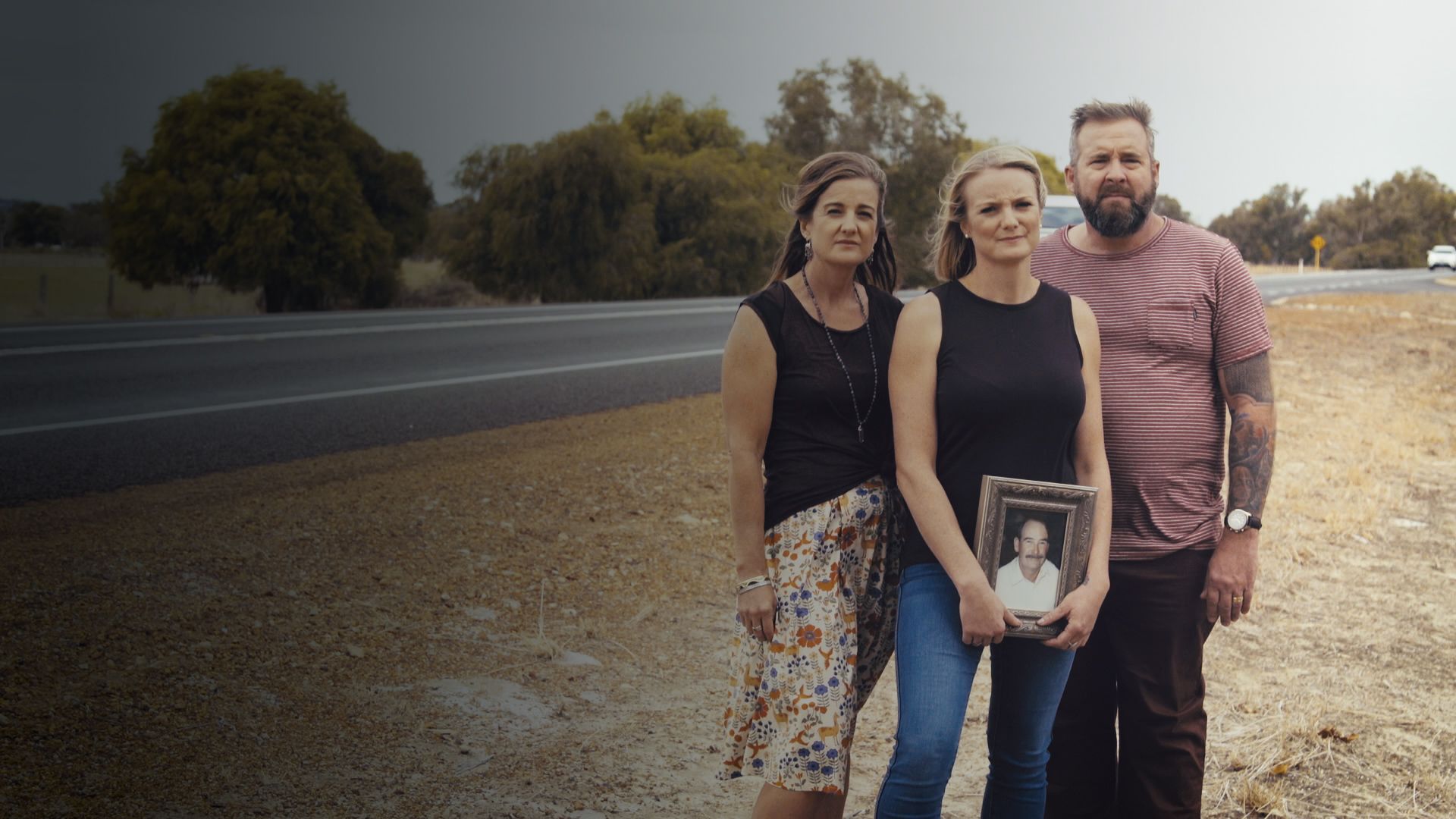
Carolyn's dad was driving safe.
But a few minutes, a fatigued driver and a sudden turn of the wheel was all it took for her dad to lose his life, as her mum watched on in the passenger seat. It was here she saw him exhale for the final time.
“They were driving down towards Bunbury, on an inland road because dad always said they were safer, when they saw the vehicle coming towards them,” Carolyn said.
“Dad knew something wasn’t right and said ‘this guy is crossing the white line’.”
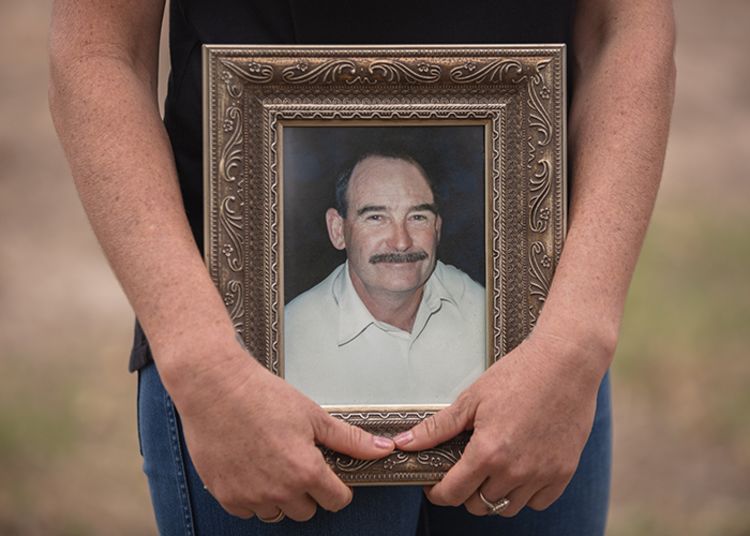
Picture: Carolyn's late father Wayne Armstrong. Photo: Portia Gebauer
Picture: Carolyn's late father Wayne Armstrong. Photo: Portia Gebauer
The other driver had fallen asleep at the wheel. An act that would change so many lives, forever.
“It is heartbreaking to think about the number of families that this, and every crash, affects,” she said.
“There were four cars that stopped after the crash. One driver who noticed he was slightly veering and weaving over the road wished he’d pulled up alongside him and beeped and woken him up.”
Carolyn said the impact of the crash trickled down to the emergency services, to the people who reconstructed her dad’s face at the funeral home, and those who washed the blood from the front of the truck at the wrecking yard.
Then there were the news stations which covered the funeral, the family friends and the close-knit racing community they were involved with.
“There is such a ripple effect, and crashes happen several times a day,” she said.
Roadside memorials sit as constant reminders of these crashes that happen too often.
For seven years Carolyn would travel to the site of the crash on the anniversary of her dad’s death and on his birthday. Over time she felt less of a connection and stopped going.
Until this month, when a brave Carolyn and her siblings Mike and Wendy returned to add their voices to The West Australian's and Road Safety Commission's Zero Excuses campaign.
“It was really difficult being back, it was a really particular feeling, it was was quite surreal,” she said.
The ripple effect has trickled into every aspect of Carolyn’s life, who has changed every aspect of her world, from the way she drives, where she lives and her career path.
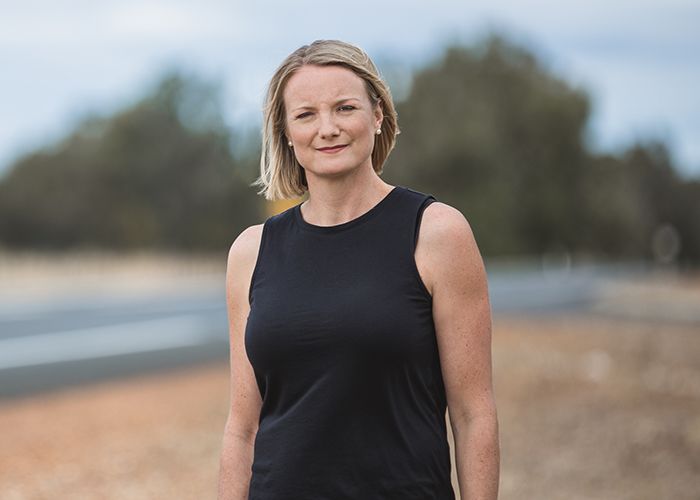
In April 2019, Carolyn returned to the site of the crash to add her voice to the Zero Excuses campaign. Photo: Portia Gebauer
In April 2019, Carolyn returned to the site of the crash to add her voice to the Zero Excuses campaign. Photo: Portia Gebauer
“I was in sales and hospitality, but went to study a bachelor of nursing because I wanted to help people,” she said.
“I don’t think this was something I would have done before, but I feel I have more to give because I’ve experienced death and grief first hand.
“Hopefully I can contribute more on a realistic level, and not just textbook help.”
Ali, pregnant with unborn child, had a close call...
“I’m a woman. I wanted to carry my child, but I couldn’t”
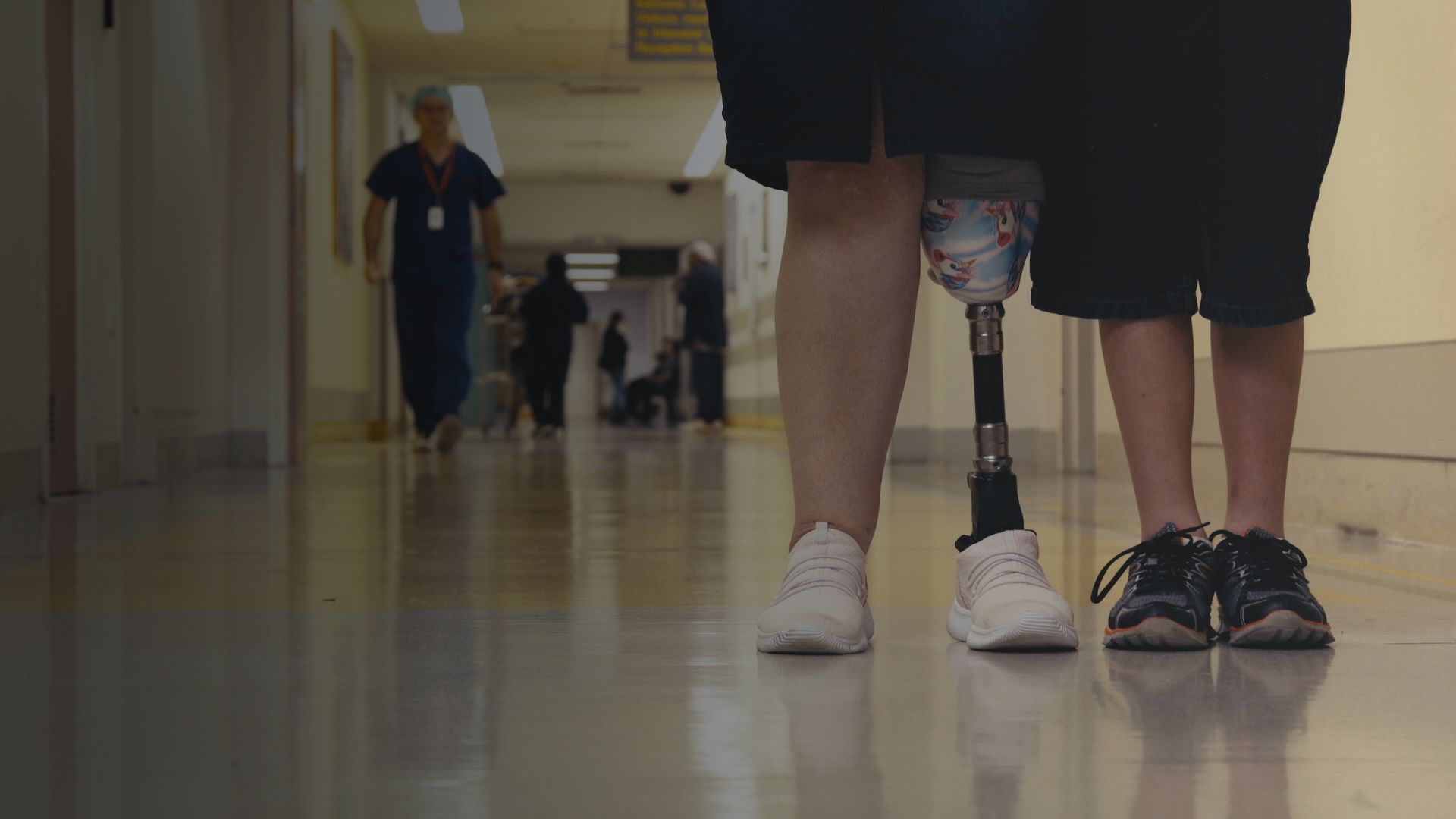
When Ali Ludlow became a mum for a second time, it didn’t follow the path she anticipated.
Five months before giving birth to Ethan she hadn’t been feeling well. No biggie, she jumped on her scooter to take herself to the doctor. But she never got there.
On the way, she was knocked 25m from her scooter by a distracted driver, a crash that left her in Shenton Park Hospital for five months.
Psychologists say often when something traumatic happens you block it out
“I blocked out flying through the air, but I remember the impact.
“I remember looking down and thinking I’d lost my calf, my foot had completely turned the other way.”
Four days after leaving her long stint in hospital, still with the steel frame on her leg, Ali gave birth.
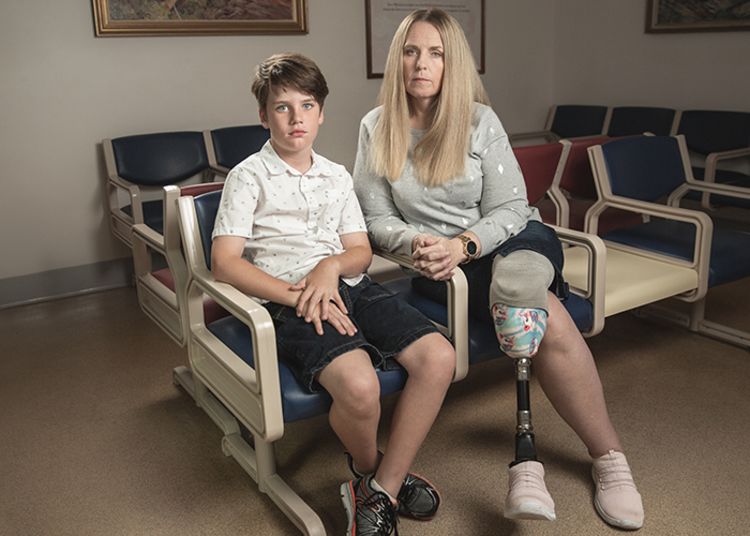
Ali and her son Ethan. Photo: Portia Gerbauer
Ali and her son Ethan. Photo: Portia Gerbauer
“I couldn’t comfort or hold my child, or soothe and rock him, because of what they had done,” she said.
The distracted driver walked away from the crash with a $100 fine. Ali was left with her life and a leg that would later be amputated.
“I was very angry to start off with, I’d look at my leg, angry with what they had done, and also that I couldn’t wear skirts any more,” she laughed.
“But with the help of my family and clinical psychologists, who reminded me there are women who have never been able to walk and are wheelchair bound, I got through it.”
For six years she wore a moon boot, but on a family trip to New Zealand she decided enough was enough. Her injured leg had to go.
“I wanted to have a go at the indoor ski field, but I couldn’t because of my leg,” she said. “I had no quality of life, I couldn’t do anything.”
In 2016, Ali had her leg amputated and hasn’t regretted the decision for a second.
“I can go food shopping,” she said. “I couldn’t before because I’d get so buggered, my leg was a dead weight that stopped me from doing things.
“I’ve done the the HBF Run for a Reason, I can muck around with the kids. I’ve been told I can do a slight jog, but I haven’t been that adventurous yet.”
Ali has come off the intense pain killers she took daily and said she wasn’t grumpy anymore – she is the Ali she was before the crash.
“People get shocked at how open I am about it all, upfront and jovial, but deep down it has had an impact,” she said. “But I don’t dwell on that because it doesn’t help. It is toxic.
“But if someone is on their phone I will curse and toot my horn and they’ll get a glare.
“A two-second look at your phone is never two seconds.
“I’d like to hope people will stop and get the message, but I still just don’t know.”
If you or someone you know has been affected by road trauma, contact Road Trauma Support WA on 1300 004 814.
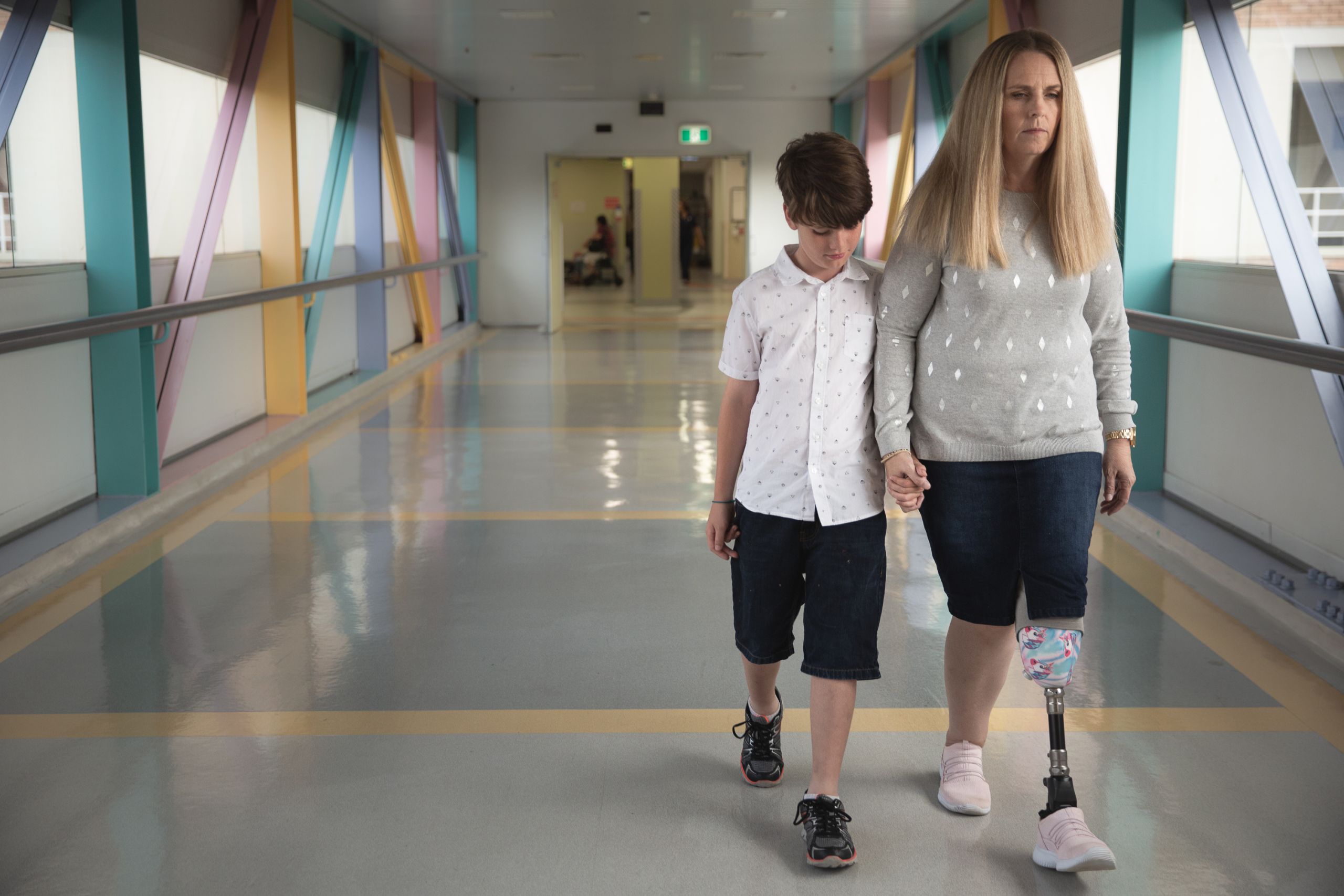
In 2018, The West Australian conducted a road safety survey, to allow drivers to rant about what makes them angry on WA roads.
Amongst many other things we learned, we discovered...
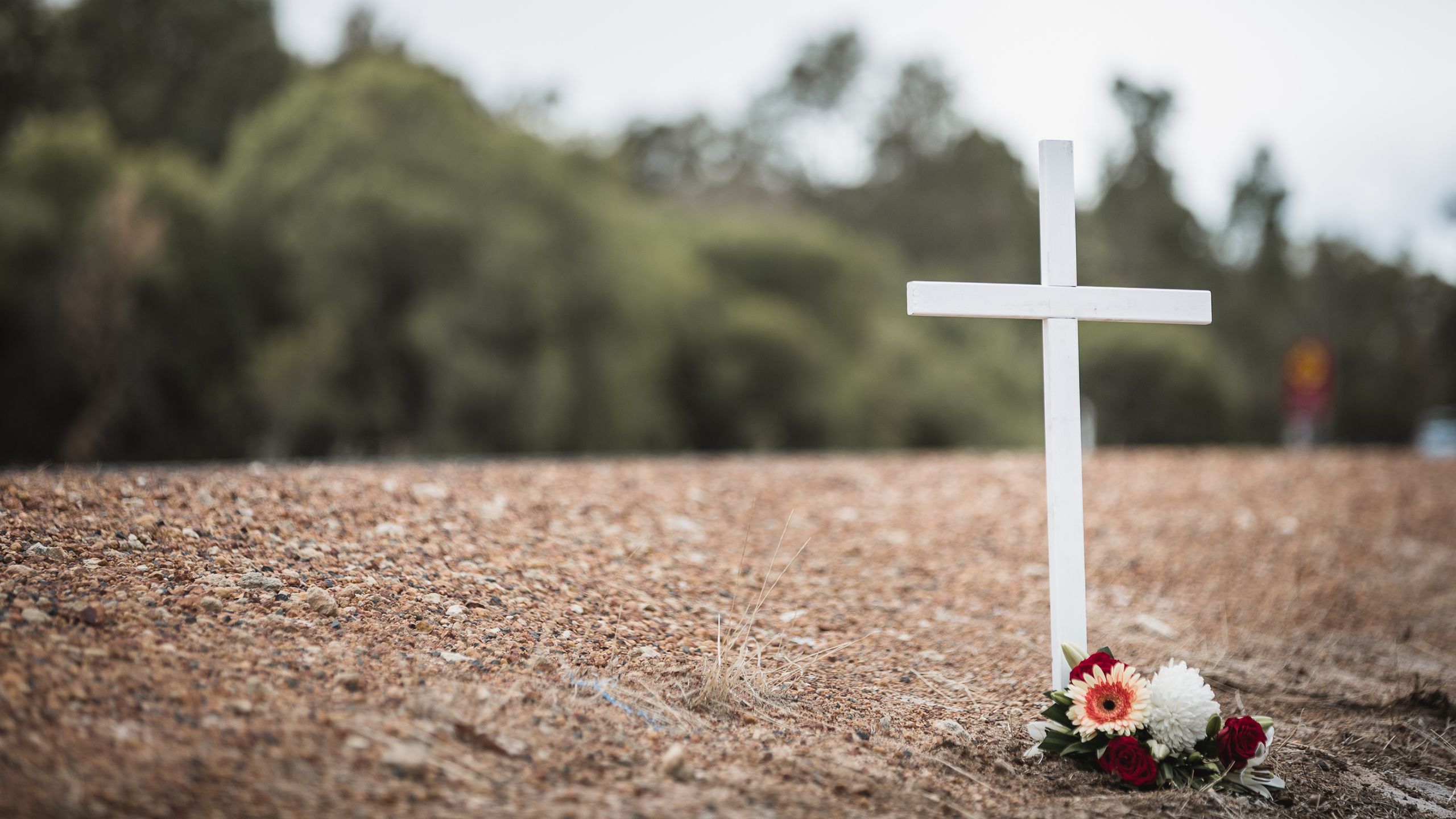
1 in 4 drivers have been injured in a road traffic incident.
No motorist is immune. Whether it's our fault or not we're all vulnerable on the road.

3 in 4 drivers admit to touching their phone while driving.
Our devices are an extension of us. For many reasons it's difficult for us to disconnect and with our increasing reliance on them, this percentage is at risk of growing.

1 in 5 P-platers have driven after drinking in the last year.
Of all motorists, this generation has grown up with strong messaging around the law and the risks. This poses a question, what is required to shift these behaviours?
However, we also learned that...

9 in 10 West Australians agree that the actions and accountability of drivers is key to the safety of all road users.
As a community, we already believe that safer roads start with drivers taking responsibility for their own driving behaviour. We know the consequence of unsafe driving is potentially devastating with 9 in 10 of us believing there is never an excuse for bad driving behaviour.
This awareness is a starting place.
Zero Excuses is about empowering all West Australian drivers to take responsibility for the decisions, regardless of how big or small, that lead to safer driving and safer roads.
One injury on WA roads, is one injury too many.
If you or someone you know has been affected by road trauma, contact Road Trauma Support WA on 1300 004 814.

Credits
Words: Jade Jurewicz and Luke Hendricks
Creative Direction: Luke Hendricks
Campaign Manager: Beverley da Silva
Video: Louis Taylor and Jesse Daniels
Photography: Portia Gebauer
This content was sponsored by the Road Safety Commission and created in partnership with Seven West Media WA.




